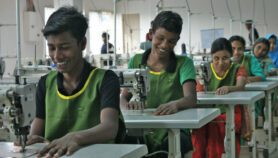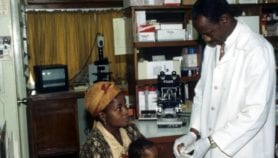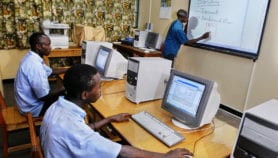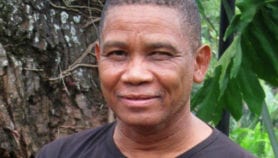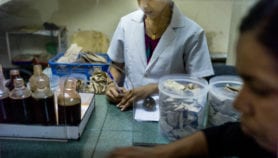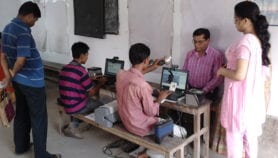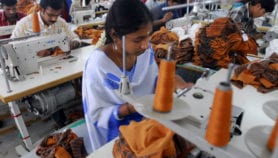21/09/12
Calls for more science research for peace
Send to a friend
The details you provide on this page will not be used to send unsolicited email, and will not be sold to a 3rd party. See privacy policy.
On International Day of Peace (21 September), some scientists are calling for more research on peacekeeping and closer collaboration with their Southern partners.
"We conceive of peace not as some ethically consigned abstraction, but as a theme that is also accessible to scientific research," Laurent Goetschel, professor of political science at the University of Basel and Director of the Swiss Peace Foundation, swisspeace, whose strapline is ‘Knowledge for Peace’, told SciDev.Net.
One way of doing research on peace is to apply the methodology of science to understanding the processes that lead to peace, according to Goetschel, who also spoke about the issue at the 3rd International Conference on Research for Development last month (20–22 August).
"’We can look at the causes of conflict, be they economic, political, historical, legal or whatever. We can also look at models for making forecasts, so we’re talking about political early warning. swisspeace has developed an early-warning programme called FAST, which was developed after the Rwanda Burundi massacres."
The system uses event data analysis to collect, sequence and analyse news agency articles and has been used in around 25 countries.
"We didn’t have enough news items for many of these regions, since conflict-prone regions are often places where there is not much media interest except in relation to conflict situations. So we established local information networks to help us."
A criticism of this approach, modelling based on news reports, is that it has not yet prevented a conflict, though, and Laurent Goetschel is the first to admit this failing.
"The problem is that science is often too late. We generate knowledge which comes after things have happened. You have these mechanisms working at the scientific level but practitioners expect quick answers to concrete questions, and from a scientific point of view this is often rather difficult.’"
But Goetschel said that despite the difficulties, more can and should be done to research issues around peacekeeping.
"We need research programmes which do research in conflict areas, after all the object of peace research is to be applied. We need more capacity — whether it be in Central Asia or in Sub-Saharan countries. This is the big challenge. My message to researchers working on peace in these countries is that they should do consultancies to survive — but remain scientific in their hearts."
His words are echoed by Susan Wolfinbarger, director of the Geospatial Technologies and Human Rights Project, a part of the Scientific Responsibility, Human Rights and Law Program at the American Association for the Advancement of Science.
Her group has successfully used geospatial technology to document human rights abuses around the world, especially in remote or dangerous locations; one example was Eyes on Darfur, in which the group used satellite imagery to document the destruction of villages in Sudan that lead to an arrest warrant through the International Criminal Court.
"A very important way in which science contributes to peace is through transitional justice mechanisms," said Wolfinbarger. "Science can contribute greatly to processes that help societies move out of conflict and toward peace by addressing human rights abuses, through criminal prosecutions, truth commissions, reparations, and institutional reforms.
"There is a need for many types of scientists to participate in these mechanisms of justice, from providing evidence to courts and commissions to facilitating data collection through information management systems to applications to aid in reforms to government, improving education and increasing accountability and improving perceptions of government."



